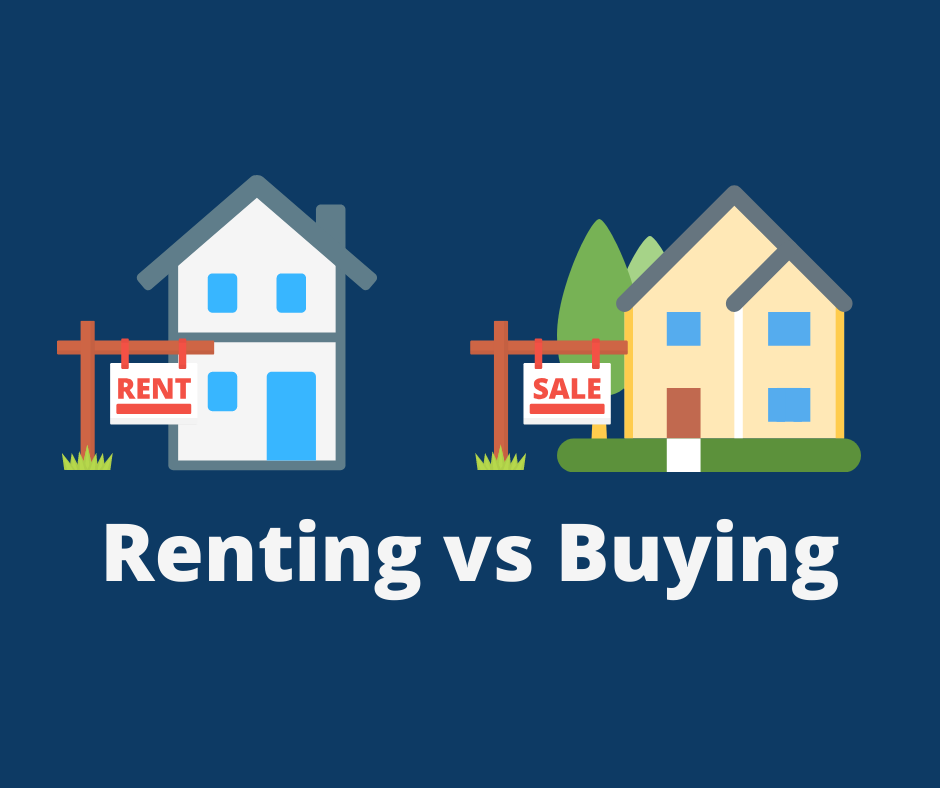Renting vs. Buying in Lagos & Abuja Nigeria: Which is Right for You in 2024?

The decision to Renting vs. Buying in Lagos & Abuja Nigeria is a significant one, influencing your financial well-being and lifestyle. We are delving into the pros and cons of each option, examining factors like affordability, financial implications, and lifestyle considerations. By analyzing the Nigerian real estate market and understanding your individual circumstances, you can make an informed decision that best aligns with your goals and aspirations.

Renting vs. Buying in Lagos & Abuja Nigeria
The vibrant cities of Lagos and Abuja are experiencing a surge in population and economic activity, attracting individuals seeking opportunities in various sectors. As the demand for housing increases, the question of renting versus buying becomes more critical. This guide explores the unique nuances of the Nigerian real estate market and provides a comprehensive framework for evaluating your options. Whether you’re a young professional starting your career or a seasoned entrepreneur seeking a stable abode, understanding the implications of renting versus buying is essential.
What are the advantages of renting?
- Flexibility: Renting provides greater flexibility, allowing you to move easily to different neighborhoods or cities as your needs evolve. This is particularly beneficial for individuals who are uncertain about their long-term plans or those who value mobility for work or personal reasons.
- Lower upfront costs: Renting requires a smaller upfront investment compared to buying, as you only need to pay a security deposit and the first month’s rent. This is a significant advantage for individuals with limited financial resources or those who are saving for other financial goals.
- Reduced maintenance responsibilities: As a renter, you are generally not responsible for major repairs or maintenance, unless specifically outlined in your lease agreement. This can free up your time and resources, allowing you to focus on other priorities.
- Access to amenities: Some rental properties offer amenities that may not be feasible for individual homeownership, such as swimming pools, gyms, or secure parking. These amenities can enhance your quality of life and provide valuable convenience.
What are the disadvantages of renting?
- Limited customization: Renting restricts your ability to customize your living space according to your personal preferences. While you may be able to make minor changes with the landlord’s permission, major renovations are usually off-limits.
- Rent increases: Rent prices can fluctuate, leading to potential increases that may strain your budget. Landlords may also increase rent at the end of your lease term, forcing you to renegotiate or find alternative housing.
- Lack of equity: As a renter, you do not build equity in your home. Your rent payments do not contribute to any long-term asset accumulation, meaning you are essentially paying for temporary occupancy.
- Landlord restrictions: Renting may involve limitations imposed by your landlord, such as restrictions on pets, noise levels, or guest visits. These restrictions can sometimes limit your freedom and enjoyment of your living space.
What are the advantages of buying?
- Equity building: Owning a home allows you to build equity over time, as your mortgage payments gradually reduce the principal amount owed. This equity can serve as a financial asset, providing you with a sense of security and potential for future financial benefits.
- Tax benefits: Owning a home in Nigeria comes with certain tax benefits, including deductions for mortgage interest payments and property taxes. These deductions can potentially reduce your overall tax liability.
- Customization and personalization: Buying a home grants you the freedom to customize and personalize your living space to your liking. You can undertake renovations, add features, and create an environment that reflects your individual style and preferences.
- Stable and predictable housing costs: Once you have secured a mortgage, your housing costs become more predictable and stable, with fixed monthly payments. This can help you budget effectively and provide financial peace of mind.
What are the disadvantages of buying?
- High upfront costs: Buying a home in Lagos or Abuja often requires a substantial down payment, closing costs, and ongoing mortgage payments. This can be a significant financial burden for individuals with limited savings or those who are just starting their careers.
- Maintenance and repair costs: Homeownership comes with ongoing maintenance and repair responsibilities, which can incur unexpected costs. These expenses can be unpredictable and may strain your budget, especially for older homes that require more attention.
- Limited flexibility: Buying a home restricts your mobility, as selling and moving can be a time-consuming and costly process. This can be challenging for individuals who are uncertain about their long-term plans or those who value flexibility for work or personal reasons.
- Market fluctuations: The value of real estate can fluctuate, potentially leading to losses if you need to sell your home during a market downturn. This risk should be carefully considered before making a major financial commitment.
Affordability
Affordability is a crucial factor to consider when deciding between Renting vs. Buying in Lagos & Abuja Nigeria. While renting can be initially more affordable due to lower upfront costs, long-term affordability is influenced by factors like rent increases and property taxes.
- Rental costs: Lagos and Abuja are known for their high rental costs, particularly in desirable neighborhoods. It is important to research the average rental rates for properties that meet your needs and budget.
- Mortgage costs: Buying a home in Lagos or Abuja will require you to secure a mortgage, which involves monthly payments comprising principal, interest, taxes, and insurance. To determine affordability, calculate your monthly mortgage payments using online calculators or consult with a mortgage broker.
- Property taxes: Property taxes in Nigeria can vary depending on the location and value of the property. Factor in property taxes when calculating your overall housing costs.
- Hidden costs: Both renting and buying can have hidden costs. For renters, these might include security deposits, pet fees, or utility bills. For homeowners, maintenance and repair costs can be substantial.
Lifestyle Considerations
Your lifestyle preferences and priorities play a significant role in deciding between renting and buying. Do you prioritize mobility, customization, or community engagement?
- Lifestyle preferences: Consider how much space you need, desired amenities, and proximity to work, entertainment, and social activities.
- Community engagement: Buying a home in a specific neighborhood can foster a sense of community, allowing you to build relationships with your neighbors and become involved in local events.
- Personal preferences: Do you value flexibility, a sense of ownership, or the freedom to customize your living space? Renting may be a better option if you prefer greater flexibility or are uncertain about your long-term plans.
- Future plans: Buying a home can be a good investment, but it requires a longer-term commitment. If you anticipate frequent moves or changes in your circumstances, renting may be a more suitable option.
Investment Potential
The Nigerian real estate market offers both opportunities and challenges for investors. While property prices in Lagos and Abuja have historically shown growth, factors like economic stability, infrastructure development, and regulatory changes influence the market’s direction.
- Property value appreciation: Property values in desirable areas of Lagos and Abuja tend to appreciate over time, offering potential for capital gains if you sell in the future.
- Rental income: Owning a rental property can provide passive income, contributing to your financial portfolio and potential for long-term wealth generation.
- Market volatility: The Nigerian real estate market can experience fluctuations, potentially affecting property values and rental income. It is essential to conduct thorough research and understand the risks associated with investing in real estate.
- Landlord responsibilities: Owning a rental property comes with responsibilities, including managing tenants, collecting rent, and handling maintenance issues. You must be prepared to allocate time and resources to these tasks.
Conclusion
The decision of Renting vs. Buying in Lagos & Abuja Nigeria is a complex one, requiring careful consideration of various factors. There is no one-size-fits-all answer, and the optimal choice depends on your individual circumstances, financial situation, and lifestyle priorities. By analyzing your financial capabilities, understanding the nuances of the real estate market, and evaluating your personal preferences, you can make an informed decision that aligns with your goals and aspirations.


